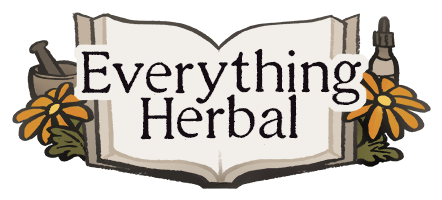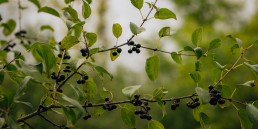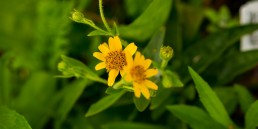This interview was conducted in April of 2021 as part of Everything Herbal’s ‘Herbal Elders’ series. This series seeks to honour and explore the unique contributions of longstanding members of the herbal medicine community in Canada, as well as abroad. This, the first instalment of the series, is being published to commemorate the life and work of John Redden – a vital member of the Ontario herbal medicine community. John was a teacher to many herbalists and naturopaths, a scholar, and expert clinician. He has contributed in innumerable ways to the profession. John passed away peacefully in his sleep on Monday the 25th of October, 2021.
This interview was conducted with Nick Faunus, Penelope Beaudrow and Victor Cirone.
Everything Herbal: How did you become interested in herbs, what was your journey like? Can you take us through your timeline and share your personal evolution as an herbalist?
John: I went to university for pre-med with the intentions of becoming a doctor, a medical doctor. I worked in hospitals in the evenings, on the weekends, in the summers when I was finishing high school and into university. When it came time to pick my med school, my father being a doctor and professor at Northwestern University, I had options, but I was completely disheartened by medicine because I couldn’t see the allopathic establishment really helping people. My whole life was geared towards becoming a doctor, and this was a hard truth to swallow. So I took a year off to travel and figure out what I was going to do with my life and I ended up travelling in England and Scotland and made my way towards this community called Findhorn. This was in 1977.
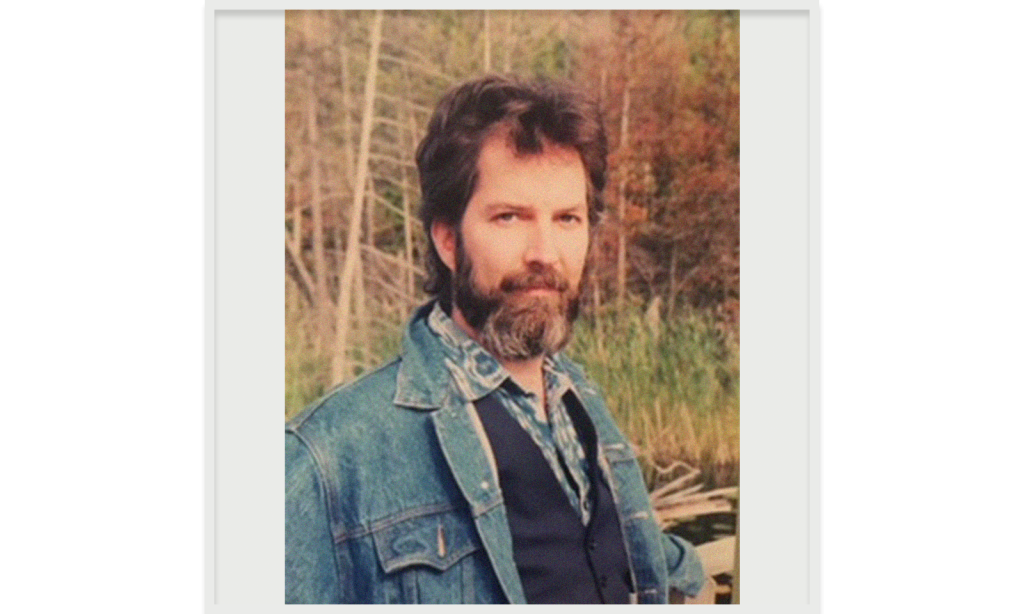
While I was farming and working at Findhorn, I had experiences with nature spirits and I went from being a non-believing scientist, a good little scientist, to now being a recovering scientist. I turned my back on hard science and became a little bit “woo-woo” because now nature is talking to me. While at Findhorn, I met members of the National Institute (NIMH) who were medical herbalists; these people put on lab coats and saw patients. And here I was thinking that herbalists were naked savages taking hallucinogenic drugs. I studied ethnobotany and that’s what I was shown.
So I decided to study herbal medicine and ended up going back to North America in 1980, and there was a guy by the name of William LeSassier who was in town – he was a teacher of a lot of American herbalists. I also met Ed Smith of Herb Pharm, as he was just leaving Boston, at the Hippocrates Health Institute. I was taking courses there on wheatgrass juice, fasting and all that. Ed directed me to Richard Evans Schultes at Harvard. So I went and visited Schultes while studying with LeSassier. Schultes let me take a semester of his ethnobotany course and I had this hard science/ethnobotany at Harvard and then LeSassier teaching his tradition of medical herbalism. I met Native Americans, took the Hoffmann course, Terry Willard’s course, and then I either just apprenticed to the few herbalists that I could find while taking all these different courses. Occasionally I would meet natives in Ontario – such as Ron Wakahatig – who would take me into the bush. Ron could also talk to the nature spirits – the little people – and was very much into the history of Native healing. Ultimately I had my experience in chemistry, biology and the hard sciences balanced with heart knowledge of the direct communication with nature. The plants were – I hate to use the word “speaking” to me but you have to say something… plants are alive and have a message that they give. Over the years, inspired by my time with Ed Smith, I started my own manufacturing business and made herbal products mostly for naturopaths, because most herbalists want to make their own products.
By 1983 I arrived in Ontario and discovered the fledgling Ontario Herbalists Association, and attended their meetings. They had a newsletter that was basically 8.5 x 11 sheets of paper that were stapled together, folded over and mailed to you – a little booklet. I was just a lurker in the OHA and I just received the newsletters and the journals, and in 1990 I volunteered to help produce a Herb Fair. At the time, the OHA was putting on these really rather hapless public presentations and they wanted to beef it up and get a slot at the Harbourfront Centre in downtown Toronto. Anne Bridgeman – an early member of the OHA – and I, created the Herb Fair which ran from 1990 to about 2005. For the first 10 years it was mostly Anne and I and a mass of volunteers. This was the largest herbal event in Ontario. We got more than 5000 participants, and the Harbourfront Centre guaranteed us a slot every year, it was the first Sunday in June. At first Richter’s Herbs supplied us with plants, followed by many others. It became a very successful and popular event.
But as the years passed Harbourfront and the City of Toronto became increasingly concerned with “regulations”. All these people who made herbal remedies didn’t have any “licensure” – but nobody cared, it was a folksy event. Every year the city took away more and more rights from our vendors, and I backed out of it by the 10th year. The Harbourfront people even brought in a hot dog truck vendor! I made him go to the farthest corner of the Fair, and pestered him like a seagull until he left, it was just disgusting to smell this food with the scent of the herbs all around you. We had our own food vendors and I was the main cook for many years, and we produced 600 meals from noon to 5PM. But the city just kept trying to take it all away from us, and all of the permissions we were granted in our original contract were little by little taken from us.
I was really into serving the professional community as a manufacturer. I have my own clinic, and oversee two naturopathic doctors and my own practice and am a clinic supervisor to naturopaths from coast to coast, who email me daily with questions about their cases, and of course the answer is one of my herbal products. I’ve got a professional wing and a grassroots wing. I always thought that it was the grassroots that was going to make the politicians change, not people sitting in an office wearing suits and carrying briefcases wagging their fingers at the government, trying to make them realize that they are the bad slaves of big pharma. The bureaucrats don’t want to hear that; they’ll just wait until the herbalists stop talking and simply go back to what they were doing. I’ve always thought that the thing that would allow herbal medicine to really flourish is the grassroots movement; speaking directly to the people. In my efforts, I took over the OHA Journal and brought up its standards to the point that our journal was reaching universities across Canada and Europe. I thought we needed to have something to give to the public – courses, fairs, events.
“The grassroots movement needs to swell up …”
I remember a day, around the year 2000, that the Federal Health Minister got ambushed in Toronto, and was forced to face a crowd gathered in Nathan Phillips Square, a wave of people demanding that the NHPA (Natural Health Products Association) be formed. The biggest impression I got from that was that the people are going to make the politicians move because they can vote. Professional herbalists can put on a suit and tie and look as uncomfortable as they are and wag their fingers and not make as much of an impression as a grassroots action like that. I’ve always believed that the folk movement has the power; herbalists are more like weeds, you mow us down and we come right back. Big government are never going to ever get rid of us but they are going to keep us as the poor cousins to the naturopaths and medical doctors, and because of that we have to make our appeal to the general public.
The oddity I’ve discovered is that it is easier to get clientele in Toronto than it is “up north” in a village or small town, because many people in these remote locales prefer OHIP (Ontario Health Insurance Plan) to paying out of pocket. In Toronto there is sophistication and education and people are paying naturopaths big dollars to be treated. The naturopaths that I appeal to are not the little white powder pill naturopaths but the herbalist naturopaths. I did teach courses at CCNM (Canadian College of Naturopathic Medicine), what they called Botanical Medicine, between 1995 and 2000, and then I kind of fell out of favour with the staff because I criticized naturopathic medicine a little too much. They are my “bread and butter” so I’m careful but at the same time I do remind them that they are losing their roots by trying to become Doctors and impress everybody with their education. In my view, especially the first few years out of school, herbalists and naturopaths should keep a low profile until they have sufficient experience. If you are going to sit in an office with a patient sitting across from you, you’d better be prepared. If you are just going to make products and take care of your friends and family, that’s one thing; but if you think you can make enough money in a clinic, then get everything together before you start telling the world that you can do these things.
“I was able to shut down during the month of August and load my van up with bags and buckets and travel between Sudbury and Timmins, picking blueberries, mushrooms, and herbs to dry and process into medicine.”
I’ve engaged in the world of online education, held courses in my shop, travelled, going to naturopathic conferences – I put on the suit and tie and comb my hair for them – and the rest of the time I’m flannels and blue jeans. I’ve covered the whole spectrum of herbal medicine as it’s available today, except that when I started I didn’t have enough business to open my doors every day and sit in my office. So I was able to shut down during the month of August and load my van up with bags and buckets and travel between Sudbury and Timmins, picking blueberries, mushrooms, and herbs to dry and process into medicine. The blueberries I actually dropped off at roadhouse taverns, I would give them a tray of berries in exchange for a meal and storage space, and then on my way back from the North I’d get my blueberries and mushrooms that I had stored. On my way back my van was full, front to back top to bottom full of wild crafted plants that I’d then work to get into tinctures in the fall. In the winter I’d be seeing patients and making custom formulas. Now I buy my herbs from herb suppliers that I like to support.
Another thing – in the 80’s and 90’s farmers were getting together to create an Organic Farmers Association and there were few standardized rules across the country that were backed by government regulation. The Canadian General Standards Board, the CGSB, has a standard for everything – from hammers to you name it. All of that is standardized, there’s a government program for the manufacturing of just about everything, but for organic farming there wasn’t. So I joined 50 to 100 other people and we helped create the first federal regulations in Canada that helped establish just “what is” organic farming, processing and sales. This document has been rewritten or updated many times and I only participated in the first two versions of it, and I realized I’m not an admin guy, so I helped generate that and went to all of these conferences. I do still go to the Guelph organic conferences and places like that but I no longer want to work with the government, it’s too oppressive. So that is kind of my arc in a way.
The Canadian Journal of Herbal Medicine…
In the early years of the Canadian Journal of Herbal Medicine people were more interested in big American names and people who had published books, than the local Canadians. So the journal was always half and half. Our good herbalists like Christine Dennis, Walter Kacera, Anthony Godfrey, they were all publishing their work but we also needed contributions from people like David Hoffmann, Aviva Romm and other big names to help sell the journal. I took a leave of absence from my role as journal editor and went to Scotland to do a graduate program in medical herbalism. This was at a branch of the National Institute called the Scottish School of Herbal Medicine, associated with the University of Wales. You have to be more than 10 years a herbalist graduate etc. to get in and I was already 20 years in at the time. I took that course and while I was doing that I handed over the journal duties to others and the Board just kind of lost interest. Often, when people find out how much work it is to be the editor of a journal, they sometimes just let it die. When I came back I did one online journal which the OHA published for about a year or two, and when they updated their website that disappeared as well. I don’t know why the journal, which I think was majorly important and a great outreach program for herbal medicine in Canada, has been ignored. Maybe a future board of directors would consider reviving it. The Canadian Journal of Herbalism – we were printing maybe 1000 copies, 500 circulated across Ontario, 200 across Canada, and the rest across Europe going to university libraries and to a few national institutes of medical herbalism, mostly British. Paper journals are going to die, but an online journal would be great. I’m not interested in the job of being a journal editor anymore but there was a time when I had a lot of work, extracurricular work, for herbalism as a journal editor and I felt that was a good outreach.
Nowadays, with so much on Facebook and whatever else, people can easily broadcast around the world. I’ve got little phone recordings that people took of me when I was giving herb walks at the annual Heartwood Herbal Gathering. Heartwood is now (was) the replacement for the Herb Fair as the largest herbal gathering in Ontario. It is a wonderful venue for herbalists to come together, spend time in the bush and with each other and share ideas, products, etc. This kind of thing is so important. I’ve gone to Boston and the Great Lakes and Michigan for different herbal events. I don’t like crossing the American border anymore, and besides, now these events are all online, we can’t even have people face to face anymore. I don’t know what to say about that…the last thing is, I believe that the herbal community of Ontario is suffering from isolation. We are not allowed to come together, and we need something. If this discussion were to be rebroadcast or shared in some way, that’d be really nice. I’ve been in the OHA since 83’ and I’ve been an herbalist since the 70’s and went from heavy science to modicum science. To make tinctures you’ve got to use science, the correct solvents and times, and the proper staging; all of that is scientific. But when it comes to the way the herbs work, we can argue all day long about what actually is in the herb that is bringing about health. Or how do you best pick an herb. We all have our own point of view, and mine is just one.
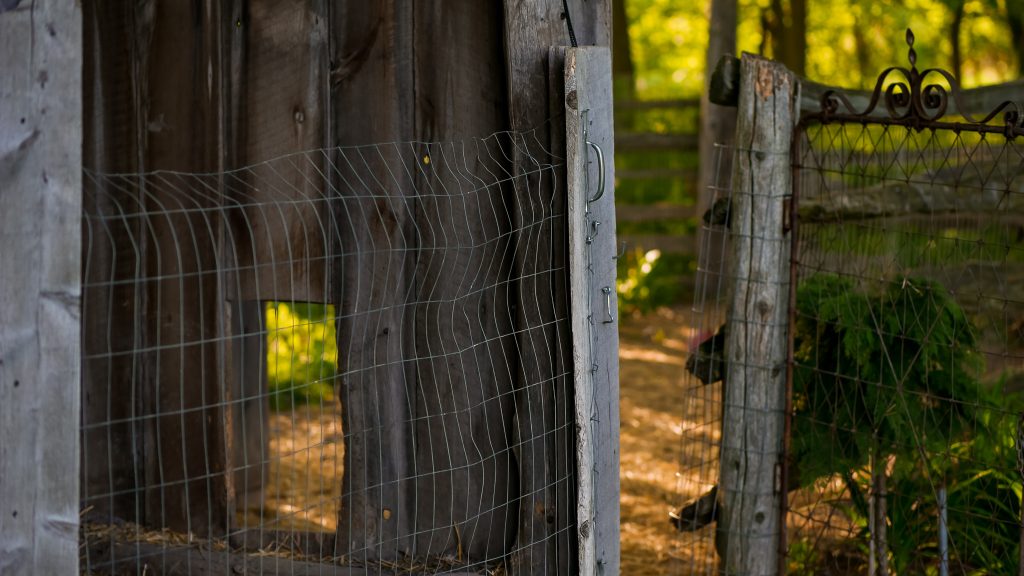
Everything Herbal: Can you talk to us about your boundaries when it comes to being an herbalist?
John: The naturopathic doctor whose office is next to mine, was a doula attending births, and a woman of course. So if I got a gynecological case I often gave it to her because I preferred not to do gynecological exams, and that was partially out of fear of litigation and partially because I always thought that it was not a man’s place. Just the fact that we call it ‘gynecology’ – that’s what men do. Women have been attending births through all history; women have always taken care of women. In medicine, men didn’t attend births until they saw that it was another form of income, it was in the 17th century when they thought that they could take that over too. I will treat women but I won’t do physical exams. That is one boundary I’m clear on. I have very few cases that I turn away because I’m not capable – the cases I turn away are people who are not cooperative. It’s not my way or the highway, but for example, there are hepatitis C patients who had really terrible lifestyles that generated their condition, and they just wouldn’t give up drinking, just wouldn’t have protective sex. They would come to me with terrible lesions on their skin and they would get better but then they would start lapsing again, drinking and partying to excess, and I’d give them one warning – this is the last time I’m going to clean you up, and if you come back to me in a wretched state I’m sending you along. That was a boundary. If a patient can’t do the work it’s not an holistic and appropriate approach to just treat their disease by covering it over. You have to treat their lifestyle, their spirit. The people who would come to me and didn’t want to change, who just wanted to be able to do their thing and take the herbs to maintain a baseline of health; that’s a boundary line.
“I do use narcotic and toxic herbs because I know how to.”
By that I mean I can use Belladonna, Datura, Kratom, Ephedra, Strophanthus; these are herbs I would not give to a beginning herbalist to use. But half of them you can find or buy and they have to be used in the correct context. My boundary on that is I have to make the product in such a way that the patient can’t poison themselves. So if I’m using belladonna I’ll add it to a compound where they’ve got to drink a bottle to get even close to a toxic dose. You can’t give someone a big bottle of Ephedra, they’ll have a heart attack, but you can give them 10ml if there is a fear of them going anaphylactic. Precautions like that can save someone’s life. People carry those epipens, but those are notoriously unreliable, they expire and break down. So I give some of my allergic patients little emergency bottles with Ephedra and then a compound containing Ephedra. Those are the main boundaries. There are also boundaries of propriety, what is the best way to treat somebody? If a person has a condition that is beyond my skill set I just open the rolodex – a quaint concept, and send them to other people. I ask my patients: do you want me to give you counselling or do you want to go to a psychiatrist or psychologist? And I have a list based on the kind of lifestyle psychotherapy that they want. And that’s about it when it comes to boundaries.
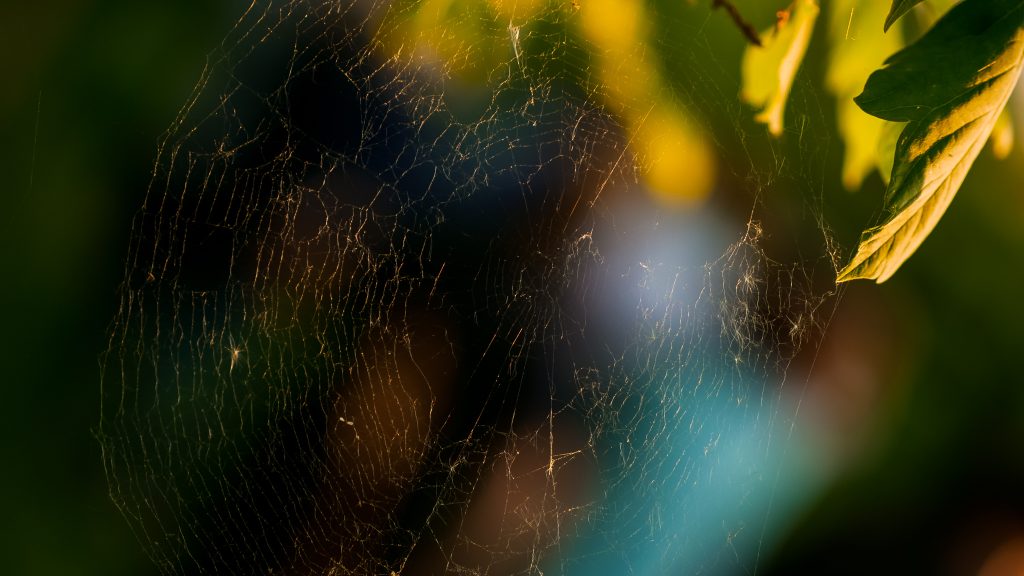
Everything Herbal: Speaking of hepatitis C, the herbal industry had a large role to play in the AIDS epidemic…
John: HIV was not a death sentence if you did certain things and avoided doing certain other things. You can live with HIV. HIV and hepatitis C often came together. It was mostly the guys from the “gay village” in Toronto that were coming to me and it was very difficult to make lifestyle changes with many of them, there is no judgment, it’s just that you can’t have hepatitis and spend the weekend drinking. You just can’t drink hard liquor all night long and expect your hepatitis to be treated with herbs.
Everything Herbal: Right at the beginning, between about 84-88’, most in the established medical profession wouldn’t even allow someone with AIDS to come into their surgery, they wouldn’t even touch them. There are people today who are still alive with HIV because of herbs.
John: The same is true of many cancer patients, too. I have patients who chose between surgery, chemo and herbs and it was a tough call, they had no herbal knowledge but were so desperate, and some of them of course did surgery and chemo and then the cancer comes back and they couldn’t do it a second time. Dante only went to hell once. These people just couldn’t go through with it a second time so they show up in my office and they didn’t know anything about natural medicine but were desperate. In those early days medical doctors were such failures. Now they’ve learned how to copy our success and call it their own because they’ve got the ticket, the office, they’ve got OHIP, or they are paying Big Pharma to copy our products. A lot of the pharmaceutical products are not nearly as vital as a crude tincture, as plants from the ground. The medical doctors have step by step, copied naturopaths and taken them into their office and a few of them are copying herbalists.
Of course the Hoxsey formula has been treating cancer patients for over 100 years. But yes, I remember those days when desperate people sat looking at me with a death sentence, and the first thing I had to assure them of is: no, hepatitis C is not a death sentence, HIV is not a death sentence, cancer is a word not a death sentence. Doctors are given such authority in our society…
I think knowledge is for sharing, I don’t believe I own knowledge, I discover things and I publish it. Newton and Leibniz both discovered calculus, yet they were not in communication and across the channel from each other, so calculus existed before either of them discovered it. The same thing is true with herbal knowledge: you read enough ancient books and you realize that they knew things that we are still discovering, they just used a different language. Whatever I know, I don’t take credit for except that I’ve aggregated pieces of information that maybe someone else didn’t associate and then re-present it so that things make sense. A good comedian only talks about daily life but makes it funny because being shown reality in a different light. A good author is just talking about daily life but makes it so that you can see it and get it.
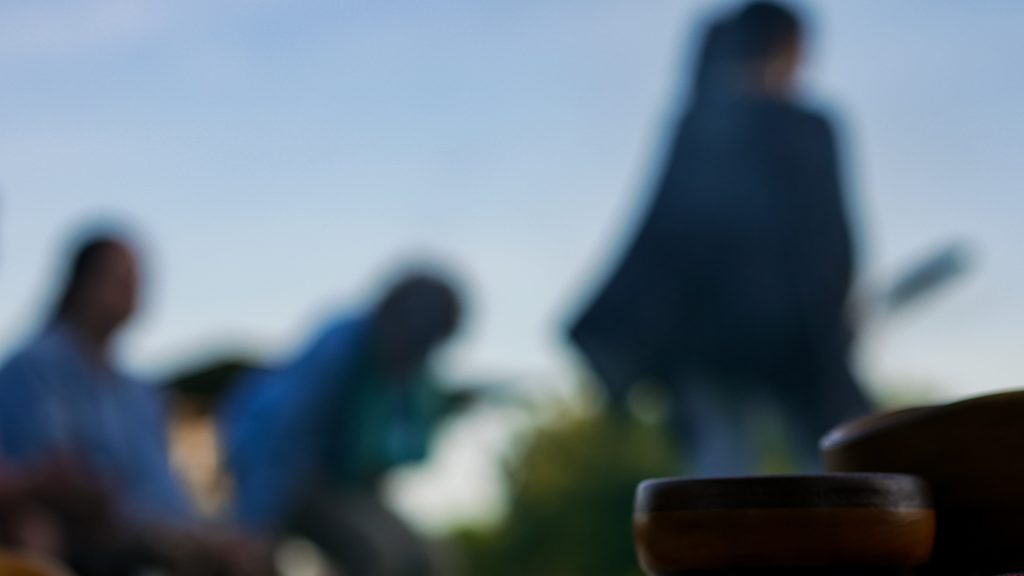
Everything Herbal: with regards to women in herbal medicine, why do you think it is that our herbal industry seems to be more led by men than women?
John: I think it is older men who have dominated herbal medicine because women took care of family and children and that division of labour was more common to the generation that I’m from. But if you go to the naturopathic school today, they have 400 students there, 100 new students a year, and today about 95 of them are women. Similarly with medical school. I think that women are taking over medicine altogether. Now the professors and old timers are men, and I don’t think that is right. Women, I believe, are better suited to practicing medicine than men; until men develop an understanding of their inner female. Everybody has a male and female inside of themselves. And medicine is a feminine practice, care-taking is what women do. The mother wrapped her skirts around her children; the men pushed them out the door. I think it only appears that men are dominating herbal medicine, but I see more women everywhere coming up and it won’t be but a generation before men are the smallest element in herbal medicine and in orthodox medicine, while women bring about the heart element. I don’t agree that men dominate herbal medicine, the women have already outnumbered the men.
Everything Herbal: Yes but it is the more famous herbalists who tend to be men, the public figures that people have heard of…
John: Christine Dennis is an amazing herbalist but she has never written a book. And so when I look at my bookshelf, and yes I have Jill Stansbury’s text… I can’t find a Canadian book on my bookcase. The closest books to me right now are the ones that I reach for most often, just above my desk, and there is not one Canadian woman there. And I agree with you about this element of male dominance, but again it comes back to us still living in the shadow of the previous generation. People whose books are on my shelf tend to be people who are mature in their careers when they wrote them, and they were mostly men. One very good exception I can think of is Clinical Naturopathic Medicine by Leah Hechtman – it is the #1 clinical textbook. And Aviva Romm’s textbook that she wrote while she was in med school. And there is a great handbook by Marisa Marciano, a pocket hand book that is a very good for students. Other than that I don’t have any woman’s books up here, certainly no Canadian women’s books, and I lament that. I keep saying to people: step forward. Women need to introduce a kind of quality that men do not, into medicine.
“The thing that you might find in my essays, or if you sit in my clinic, is the spiritual element of herbal medicine, which is deeply important to me.”.
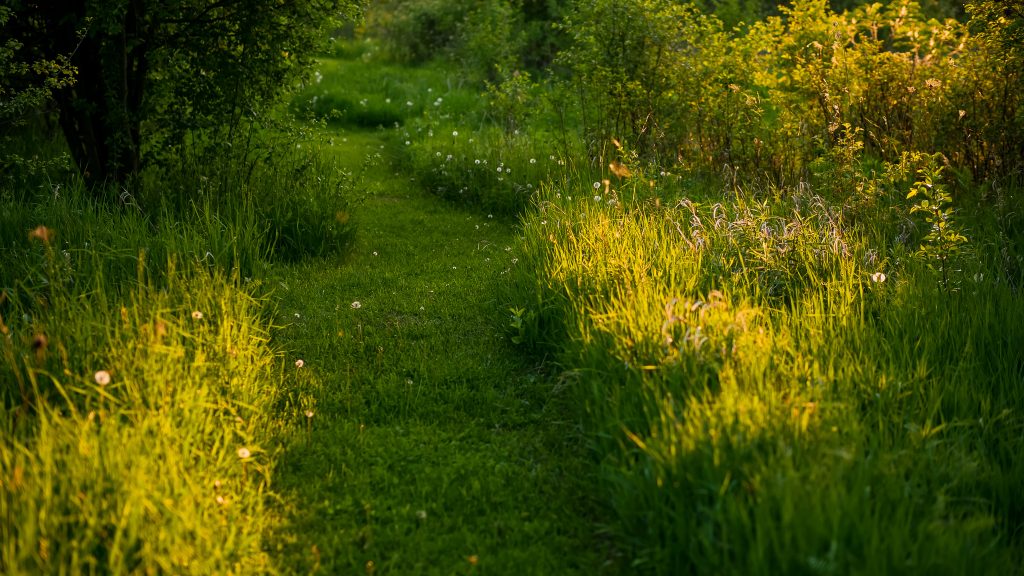
The name of my business, Viriditas, comes from Hildegard of Bingen. Viriditas is a word that Hildegard gave for the life force, but she is a Medieval author and the inquisition would have killed her if she said anything that was not accepted. She had to couch all her language to be accepted by the Church, she was in the Church as a nun. She had a birthing centre, a clinic, a garden where she grew the herbs, and a lab where she made her medicine. So Viriditas was not just a life force but the life force that had directive. This directive came from the divine part of creation, it was the will of God. In Hildegard you have a very clear hierarchy from the Earth to Heaven, a conception that all things are guided by some divine will. It took a visionary like her to perceive that will in nature – but you still can use her herbs and formulas. She also uses gemstones and prayer. Most of medicine, until the advent of Anglo-Saxon medicine and Renaissance medicine, every tradition of herbalism involved prayer or incantation. You had to invoke some being besides just taking a cup of something. Everything had to be linked, songs, rituals, medicine. Lots of people still have rituals to reorient a person socially and back into nature. When we think that herbs are just herbs, just bottles of liquid or pills, without any other element… well, then we are lost at that point, and our medicine is lost too. I really like to speak to that because it is a part of my practice to reorient people back into society and nature. For North American Natives, drumming is how they do that. Everybody has to make a drum, play the drum, know the traditional songs, and when they sing them there is a lesson that goes with it. That is a spiritual medicine. But if you are in the city of Toronto, I can’t ask my patient to build a drum, or have a stack of drums in my closet and sell them drums – that is not part of my tradition, so I have to find other means. I have a lot of strong opinions and I don’t mind giving them…
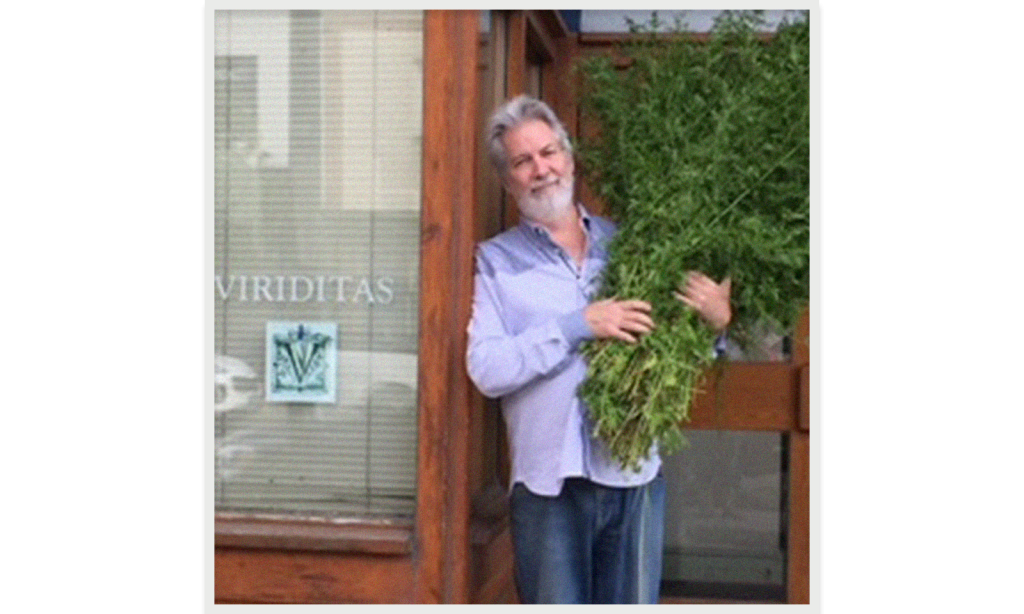
Photos of John provided by Taylor, with additional photos provided by Serena Mor
